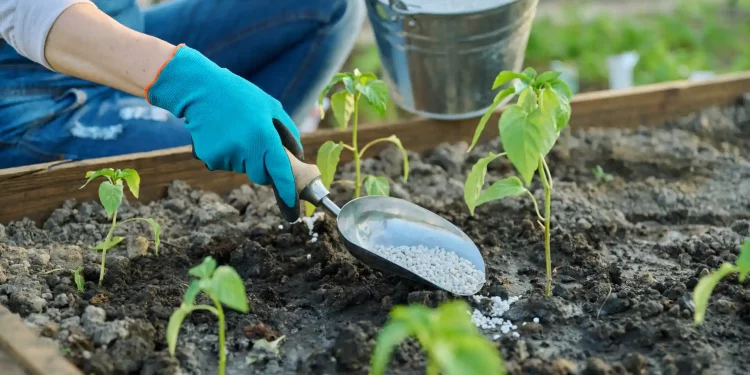Scientists have been testing a new way to make fertilizer using air, water, and electricity. Debye Ltd. is collaborating with the Agri-Tech Centres to test a system that mimics lightning’s capacity to collect nitrogen in the form of nitrates when it strikes water.
Debye Ltd, a UK-based fertilizer company, is developing portable, container-like systems that can be placed on farms or central locations. These systems do not require conventional production methods; instead, they produce nitrate-based fertilizer for nearby farmers using only air, water, and energy.
Scientists have been testing a new way to make fertilizer using air, water, and electricity. They are growing lettuce in Agri-Tech Centre CHAP’s vertical farming facility at Stockbridge for 18 months to see if it works well. Fellow Centre Agri-EPI, an agricultural tech support firm, provides project management and life-cycle analysis. This firm measures the product’s economic and environmental sustainability at every stage of development. It also helps them understand how good this method is for the environment and the economy.
The main aim of this project is to create a proof-of-concept prototype with a capacity of one kilowatt, measure and contrast the post-harvest characteristics and crop yields for standard nitrogen fertilizer and fertilizer produced by Debye Ltd.’s machine, and assess the machine’s commercial viability. In three years, Debye might launch small-scale pilot projects on farms if the trial is successful, pending funding.
The funding for the project comes from the Biotechnology and Biological Sciences Research Council’s Novel Low-emission Food Production Systems: Feasibility Studies competition, as well as Innovate UK.
Debye Aims to Revolutionize Fertilizer Production
The Agri-Tech Centres support creative new businesses at every stage of their development. They help them obtain capital and grant access to research facilities to test, prove, and validate novel concepts aimed at addressing the major issues facing the agri-industry, including environmental sustainability and climate change.
Dr. Burak Karadag, Chief Technical Officer of Debye Ltd, had first developed this technology. He was initially employed as a space engineer, specialising in satellite propulsion. However, his interest in the characteristics of lightning led him to consider how he could use space technology to address significant problems on Earth. He also stated that the sustainability of the world’s food supply depends on fertilizer, yet the ways it is now produced harm the environment and could eventually upset the market.
Nowadays, many farmers rely on ammonia-based fertilizers whose economic model depends on natural gas-fueled, mid-to-large-scale production and which have well-documented detrimental consequences on the quality of the air, soil, and water. Manufacturers are attempting to lower the carbon footprint of fertilizer by switching to green hydrogen. However, locally sourced, renewable energy sources could power direct nitrogen capture technology, resulting in almost zero emissions, local, secure availability, and significantly improved soil health.
Burak mentioned that five per cent of greenhouse gas emissions worldwide, or half of the emissions produced by the EU27 in 2021, are attributable to the manufacturing of synthetic fertilizers today. If only they could get rid of those emissions! Working as a rocket scientist was indeed exciting. Still, he was pleased to go into agriculture because he was inspired by the opportunity to address climate change and improve food security via innovation.
The Need for Sustainable Solutions
Dr Harry Langford, Innovation Network Lead at CHAP, stated that food production depends on fertilizers. However, due to environmental and economic concerns, there is a renewed emphasis on technological innovation to improve production and application efficiency and practice diversification towards alternate types of fertilizers.
The Agri-Tech Centres ( a UK-based non-profit organization) are thrilled to be partnered with Debye Ltd. to assess this innovative technology’s viability and contribute to its value proposition. UK farmers and growers can facilitate acceptance and promote a fair transition by building an evidence base for innovative technology.


















